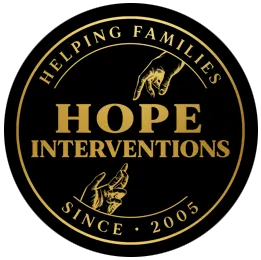
#1 Interventionist in San Diego
What is a Substance Abuse Interventionist?
An interventionist is a trained professional who specializes in facilitating interventions for individuals struggling with addiction, substance abuse, or other destructive behaviors. Their primary role is to guide the intervention process, assist family members and loved ones in planning and executing the intervention, and help facilitate communication between all parties involved.
Interventionists typically have backgrounds in counseling, psychology, social work, or addiction treatment. They often have extensive experience working with individuals and families affected by addiction and are knowledgeable about various treatment options and resources available.

Assessment: Before the intervention takes place, the interventionist will conduct an assessment to gather information about the individual's addiction, history, and specific circumstances. This assessment helps the interventionist understand the situation better and tailor the intervention approach accordingly.
Planning and Preparation: The interventionist works closely with family members, friends, and other participants to plan and prepare for the intervention. This includes determining who will be involved, choosing a suitable location, and developing a strategy for communicating with the individual about their addiction.
Education and Guidance: Interventionists provide education and guidance to participants about addiction, the intervention process, and effective communication strategies. They help prepare participants emotionally and mentally for the intervention and address any concerns or questions they may have.
Facilitation: During the intervention, the interventionist serves as a neutral facilitator, guiding the conversation and ensuring that communication remains constructive and respectful. They help keep the focus on the individual's need for treatment and encourage participants to express their concerns and feelings in a supportive manner.
Referral to Treatment: If the individual agrees to seek treatment, the interventionist can provide recommendations and referrals to appropriate treatment programs, rehab facilities, therapists, or support groups. They may also assist in making arrangements for admission to a treatment center.
Follow-Up Support: After the intervention, the interventionist continues to provide support and guidance to both the individual and their family members. They help coordinate ongoing care, provide resources for aftercare support, and offer assistance in navigating the challenges of early recovery.


Staging an Intervention works?
The effectiveness of staging an intervention can vary depending on various factors, including the individual's readiness to seek help, the approach used during the intervention, and the support system available post-intervention. While interventions have the potential to be successful in motivating someone to seek treatment for their substance abuse, they are not guaranteed to work in every situation. Here are some considerations regarding the effectiveness of staging an intervention:


Motivation and Readiness: The success of an intervention often hinges on the individual's motivation and readiness to acknowledge their substance abuse problem and seek help. If the person is in denial or not yet ready to make a change, the intervention may not immediately lead to treatment acceptance.
Professional Guidance: Involving a professional interventionist or therapist can increase the likelihood of a successful intervention. These professionals can provide guidance on the intervention process, facilitate communication, and offer support for both the individual and their loved ones.
Support System: A strong support system of family members, friends, and professionals can significantly impact the success of an intervention. Having a network of people who are committed to supporting the individual throughout their recovery journey can increase the chances of treatment acceptance and long-term sobriety.
Treatment Options: Providing clear and viable treatment options during the intervention can help the individual see a pathway to recovery. This may include information about rehab facilities, therapy programs, support groups, and medical professionals who specialize in addiction treatment.
Follow-Up and Continued Support: Following up with the individual after the intervention and providing ongoing support is crucial for maintaining momentum towards recovery. Continued encouragement, assistance in accessing treatment, and involvement in support networks can help reinforce the message conveyed during the intervention.
Individual Factor: It's essential to recognize that every individual and situation is unique. Factors such as the severity of the addiction, underlying mental health issues, past treatment experiences, and personal motivations can all influence the effectiveness of an intervention.
Important Tips To Keep In Mind When Conducting An Intervention
Conducting a substance abuse intervention for a loved one can be a daunting and emotional experience. However, with careful planning and consideration, it can also be a crucial step towards helping your loved one overcome their addiction. Here are ten important tips to keep in mind when planning and executing a substance abuse intervention:
Educate Yourself: Before staging an intervention, educate yourself about addiction, the specific substance your loved one is abusing, and available treatment options. Understanding the nature of addiction will help you approach the intervention with empathy and insight.
Form a Support Team: Gather a small group of family members and close friends who are willing to participate in the intervention. Choose individuals who have a positive relationship with the loved one and can offer support and encouragement.
Seek Professional Guidance: Consider consulting with a professional interventionist or therapist who has experience in conducting interventions. They can provide valuable guidance, help you develop a strategy, and facilitate the intervention process.
Plan Ahead: Plan the intervention carefully, including the time, location, and logistics. Choose a neutral and private setting where your loved one will feel comfortable and safe. Make sure everyone involved knows their role and what they will say during the intervention.
Practice Compassionate Communication: Approach the intervention with empathy, compassion, and non-judgment. Use "I" statements to express your concerns and feelings without blaming or shaming your loved one. Focus on expressing love, support, and a desire to see them get help.
Set Boundaries and Consequences: Clearly outline the consequences of continued substance abuse and enforceable boundaries if your loved one refuses treatment. However, avoid making empty threats or ultimatums that you are not prepared to follow through on.
Offer Treatment Options: Research and present specific treatment options and resources available to your loved one, including rehab facilities, support groups, therapy programs, and medical professionals. Offer to help them navigate the process of seeking treatment.
Remain Calm and Persistent: Expect resistance and denial from your loved one, but remain calm, patient, and persistent. Stay focused on the goal of getting them help and avoid getting drawn into arguments or confrontations.
Express Love and Support: Reiterate your love and support for your loved one throughout the intervention. Let them know that you are there for them every step of the way and that seeking help is a courageous and positive step towards recovery.
Follow-Up and Follow Through: After the intervention, continue to offer support and encouragement to your loved one, whether they choose to seek treatment or not. Follow up on any commitments made during the intervention and be prepared to provide ongoing assistance in accessing treatment and resources.
Remember that substance abuse interventions can be emotionally charged and unpredictable, but by approaching the process with empathy, understanding, and a commitment to supporting your loved one, you can increase the likelihood of a positive outcome and help them take the first step towards recovery.


